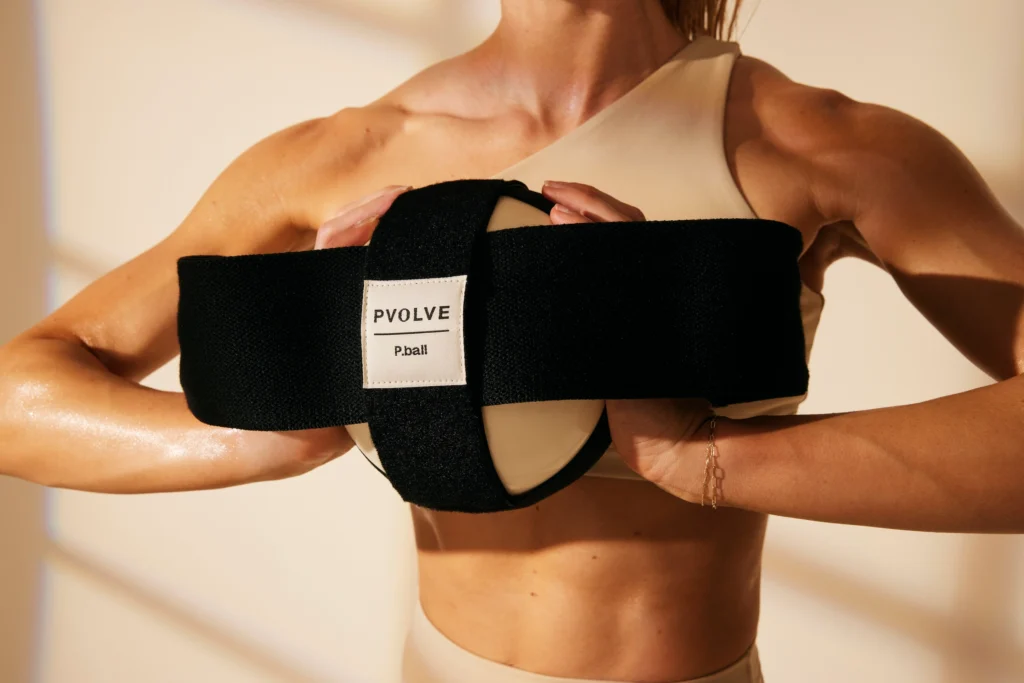
Once overlooked, women’s midlife care is suddenly the hottest space in health tech. Peloton is getting in on the trend, co-launching a study on how targeted exercise can improve menopause-related symptoms
Perimenopause doesn’t wait until 50. For many women, it begins in their mid-to-late 30s or 40s, a time already packed with career demands, caregiving and everything in between. The transition can bring more than a hundred possible symptoms, from brain fog and anxiety to weight changes and sleepless nights. Yet for decades, the conversation around midlife health has been limited to hot flashes and night sweats.
A new report from women’s wellness company NNABI underscores just how overlooked this life stage remains. The Peri Power Report 2025, a national survey of 1,000 U.S. women, found that although most respondents reported an average of seven perimenopause-related symptoms, only 10% had received a formal diagnosis. Nearly 40% had never even considered perimenopause as the cause, often attributing their symptoms to stress, mental health or aging.
Much of that stems from the fallout of the early 2000s Women’s Health Initiative, which linked hormone therapy to health risks, led to widespread panic among both women and physicians and resulted in prescriptions for HRT plummeting worldwide, by about 46% in the U.S. alone within a few years. The result, some suggest, was two decades of confusion and silence. But that silence is breaking. A new generation is asking better questions, pushing for better science and demanding better care.
And now, the market is responding.
Where medicine fell short, technology is moving fast to catch up. The result? A surge of innovation focused on improving how women experience perimenopause and menopause, from exercise and data tracking to clinical care.
Here are some of the players leading the charge:
Peloton Steps Into Menopause Care
Peloton on Monday partnered with Respin Health, the holistic menopause platform founded by Halle Berry, to launch one of the first large-scale research studies on how targeted exercise can improve menopause-related symptoms.
The initiative, called “PRESS” (Peloton/Respin Exercise & Symptoms Study), invites 500 members to participate in an eight-week research program combining Peloton workouts with Respin’s clinically informed care protocols. Participants will get curated classes from instructors Christine D’Ercole, Susie Chan, Joslyn Thompson Rule and Charlotte Weidenbach, along with community support through Peloton’s Teams feature.
“Our primary goal at Peloton is improving member outcomes around fitness, strength, longevity and happiness,” Peloton CEO Peter Stern said. “By partnering with Respin, we are taking an important step in supporting our members through every phase of their wellness journey — helping them find community, build strength and feel great.”
The study runs through December with findings expected in early 2026, followed by a broader Peloton x Respin Menopause Care Program.
Clue Combats Health Misinformation
Meanwhile, Clue, the women-led period and cycle tracker used by over 100 million people, is taking aim at another gap: misinformation. A recent Clue survey revealed that 82% of U.S. women worry about medical misinformation online, with more than half having encountered reproductive health content they don’t trust.
To counter that, Clue has appointed Dr. Charis Chambers, MD, known online as The Period Doctor, as its new chief medical officer.
“Too many women and people with cycles are left in the dark about what’s happening in their own bodies,” Chambers said. “They’re misinformed, dismissed or confused, especially when it comes to conditions like PCOS or major transitions like menopause.”
Louise Troen, Clue’s CMO, said the move reinforces Clue’s commitment to science-based insights.
“Our mission is to connect the dots between personal feelings, intelligent symptom tracking and research-backed data so women can make confident, informed choices.”
Oura Brings Biometrics to Perimenopause
Smart ring maker Oura is also stepping into midlife health with new tools for pregnancy and perimenopause. Its latest app update includes a redesigned Pregnancy Insights experience and the brand’s first-ever Perimenopause Check-In, which uses the Menopause Rating Scale (MRS) to quantify symptoms and quality of life.
Members receive a results report, cycle data and direct access to expert care partners like Evernow, Maven, Midi Health and Progyny.
“We’re expanding the Oura experience to better reflect the deeply personal and varied realities of women’s health,” Oura chief product officer Holly Shelton said. “For generations, many have faced these transitions without the knowledge, resources or care they deserve, and we’re committed to changing that.”
Nutrafol Tackles Awareness
Hair health brand Nutrafol is broadening its reach beyond supplements with the launch of “The Menopause Edit,” a print and digital magazine meant to normalize menopause conversations.
The debut issue features contributions from clinicians, dermatologists and public figures like Tamsen Fadal and Caitlin Murray, alongside experts from Natural Cycles and Midi Health. The publication reinforces Nutrafol’s positioning as a science-driven voice in women’s wellness.
Fabulous Funding
The category’s most recent funding milestone came from Midi Health, which raised $50 million in Series C funding led by Advance Venture Partners (AVP) to expand its insurance-covered telehealth platform nationwide.
“We’re leading Midi Health’s $50M Series C financing because (CEO) Joanna Strober’s vision is not just to fill a massive gap in the healthcare system — she is redefining how midlife women’s healthcare should work,” AVP shared in its announcement.
Celebrity investors Amy Schumer, Connie Britton, Brandi Chastain, Meena Harris, Sheryl Sandberg, Tekedra Mawakana and Tory Burch have also backed Midi, with Schumer publicly sharing that the platform’s treatment greatly improved her perimenopause symptoms.
The telehealth company has also teamed with Club Pilates and Pure Barre for a new campaign that will offer informative live workshops led by Midi clinicians at select studios in the Bay Area, Chicago, Houston, Indianapolis and Washington, D.C.
Earlier this year, women’s digital health startup Coral raised $4.1 million CAD in seed funding to expand its virtual care platform for women navigating perimenopause and menopause. The round was led by Brightspark Ventures, with participation from Diagram, The51 and several angel investors.
The new platform integrates medical assessments, at-home testing and personalized care plans supported by clinical experts. Members can access prescriptions, lifestyle guidance and ongoing support through the digital platform.
Co-founder and chairwoman Anna Chif, who previously co-founded telemedicine provider Dialogue, said Coral’s goal is to help women “live their best years” through evidence-based solutions.
Fitness Brands Target Midlife Strength
Legacy fitness companies are embracing women’s midlife health through new programs that address muscle preservation, hormonal changes and long-term vitality.
Jazzercise is helping perimenopausal and postmenopausal women stay strong with Vital Sculpt HIIT, a new program designed to preserve muscle, support bone health and improve mobility. Inspired by CEO and chief choreographer Shanna Missett Nelson’s own midlife experience, the program combines heavy strength and HIIT training with functional movement to help women feel stronger through menopause and beyond.

Meanwhile, BODi, formerly known as The Beachbody Company, is expanding its focus to women’s hormonal health, Pilates and functional nutrition. The fall lineup brings Belle Vitale, trainer Autumn Calabrese’s hormone health program, to all subscribers and introduces Track Pilates, a new four-week, at-home series.
Functional fitness brand Pvolve is aligning with the longevity and GLP-1 conversation by reframing strength training as medicine, particularly for women in midlife.
In a 12-week study at the University of Exeter, women aged 40 to 60 saw double-digit improvements in strength, flexibility and balance using Pvolve’s method, results that held across pre-, peri- and post-menopause.
“It should be treated like medicine, with the right dose, the right movements and consistent application for measurable outcomes,” Pvolve chief scientific and clinical advisor Dr. Nima Alamdari said. “Exercise is medicine, and the future is integrating clinically validated movement into both healthcare and lifestyle.”
